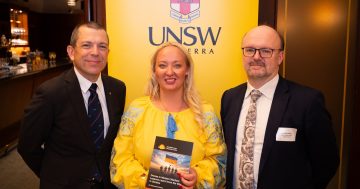Caroline Kitchener* says women academics seem to be submitting fewer papers during coronavirus, signalling another disadvantage for their careers.
 This was supposed to be a big year for Einat Lev.
This was supposed to be a big year for Einat Lev.
She planned to do field work in Hawaii and Alaska, submit a major research proposal, then finish writing the last of five papers necessary for her tenure application.
In September, she would finally go before the review committee, the final step to becoming a full-fledged associate professor of seismology at Columbia University.
Now, with her seven-year-old daughter at home, Lev can only work four hours each day, instead of her usual 10.
She mostly had made peace with the delays, but then she heard from a male colleague.
They had started their careers around the same time.
His wife took care of their kids full-time, while Lev’s husband has a full-time job.
“On the bright side of things,” the colleague said of his experience, “[self-quarantine] gives me time to concentrate on writing.”
Lev wanted to scream.
“That sounds like such a luxury,” she replied.
“I can’t even imagine.”
Editors of academic journals have started noticing a trend: women — who inevitably shoulder a greater share of family responsibilities — seem to be submitting fewer papers.
This threatens to derail the careers of women in academia, says Leslie Gonzales, a Professor of Education Administration at Michigan State University, who focuses on strategies for diversifying the academic field.
When institutions are deciding who to grant tenure to, how will they evaluate a candidate’s accomplishments during coronavirus?
“We don’t want a committee to look at the outlier productivity of, say, a white hetero man with a spouse at home and say, ‘Well, this person managed it’,” says Gonzales.
“We don’t want to make that our benchmark.”
Astrophysics is one field in which COVID-19 seems to be having a disproportionate effect on female academics, said Andy Casey, an astrophysics research fellow at Monash University who analysed the number of submissions to astrophysics “preprint servers”.
Casey compared data from January–April 2020 to the same period in previous years, noting “perhaps up to 50 per cent more productivity loss among women”.
Editors in other fields have noticed the same thing.
Elizabeth Hannon, Deputy Editor of the British Journal for the Philosophy of Science, said the numbers were unlike anything she’d seen before.
While Comparative Political Studies, a journal that publishes 14 times a year, received the same number of submissions from women this year and last year, the number of submissions from men has increased more than 50 per cent, according to Co-Editor David Samuels.
Other journals have only seen a dip in the number of solo-authored papers submitted by women: submissions are stable for women working as part of a team.
This evidence is anecdotal: some journals say they’ve seen no change or are receiving comparatively more submissions from women since self-quarantine began.
But the anecdotes are consistent with broader patterns in academia, says Gonzales: if men and women are at home, men “find a way” to do more academic work.
When men take advantage of “stop the clock” policies, taking a year off the tenure-track after having a baby, studies show they’ll accomplish far more professionally than their female colleagues, who tend to spend that time focused primarily or solely on child care.
Academic writing and research requires “the time and space to breathe and be creative,” said Erica Williams, Chair of the Sociology and Anthropology Departments at Spelman College.
It’s not something you can do in fits and starts.
Lev can’t stop thinking about how this might affect her chances at tenure.
At her last review, she was told to submit five papers by September, authoring at least some on her own.
“If that’s not happening, that’s a problem,” said Lev.
Most senior members of her department are older: If they had kids, she says, they had them a long time ago.
She worries they won’t empathise with her situation.
“I can see people being like, ‘Oh it was hard for everyone, we were all home and nervous’,” Lev said.
Before coronavirus, Whitney Pirtle, an Assistant Professor at the University of California, was also slated to go up for tenure this northern autumn.
But when the school offered a “one-year COVID extension”, she decided to take it.
Pirtle knows she’s taking a risk.
“My … fear is just, does this look bad?”
“How does it look to ask for an extension?”
Many universities are offering similar extensions.
That’s good, Gonzales says, but it’s not enough.
An extension “does nothing to account for a dip in productivity”.
If a woman with young kids at home takes an extra year, evaluators still might wonder why she didn’t accomplish more during that time.
For the next few years, there should be a letter added to every tenure application, Gonzales says, instructing readers to consider how the “fallout [from coronavirus] has very different effects across gender and race”.
Evaluators should consider each applicant’s individual set of circumstances, she said.
“We essentially want to say, ‘Hey, this was a big deal for a lot of people.’”
If someone didn’t finish all three papers she’d been expecting to write, maybe that’s okay.
Lev has started to keep track of her days, writing down how many hours she spent with her daughter, and how many hours she was able to work.
If anyone ever says she wasn’t “productive” during coronavirus, she’ll have the records to prove them wrong.
* Caroline Kitchener is a staff writer at The Lily for The Washington Post.
This article first appeared at www.thelily.com.











